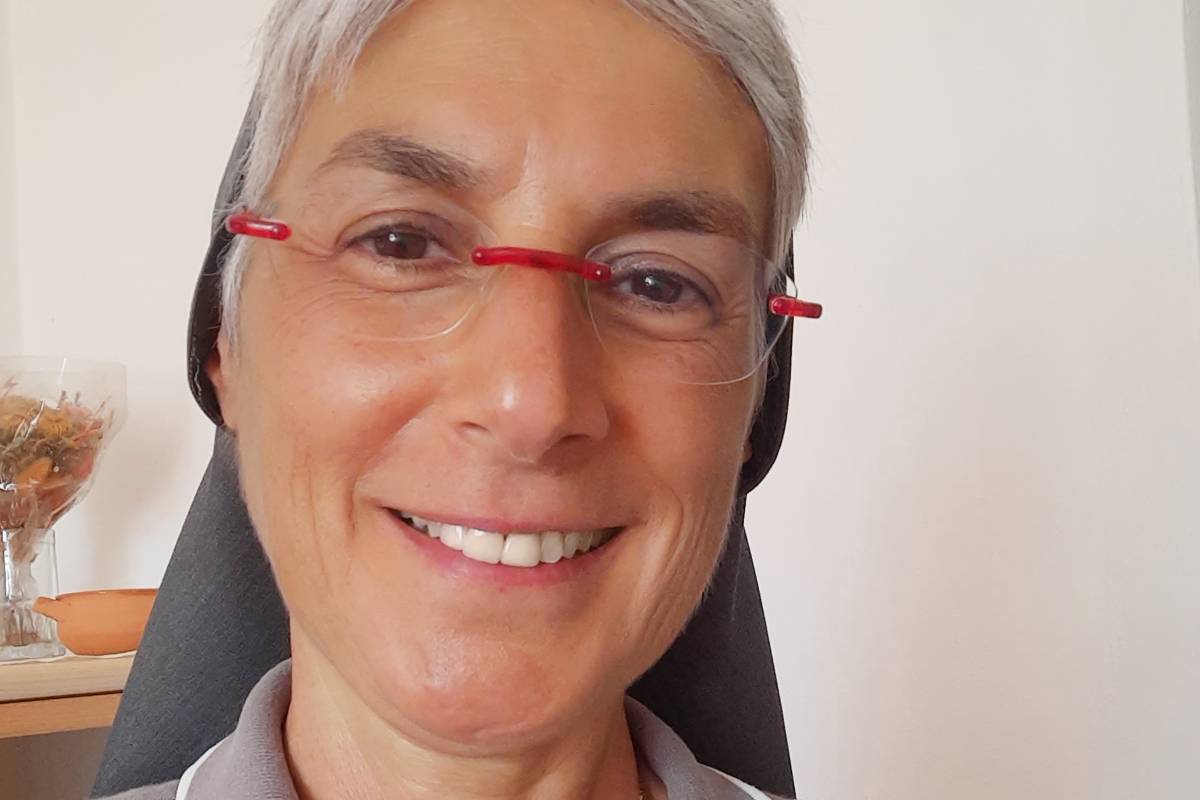The Salesian Sister Anna Condò goes every day to the detention house in Bollate, assisting the inmates in their material needs, but also promoting paths of prayer and spirituality
by Luisa
Bove
Sister Anna Condò, a Salesian from the Milanese community in via Bonvesin della Riva, which has 37 religious women, is experiencing a return to origins, almost all of whom are involved in education in schools of all levels. While Sister Alessandra Pezzi – in addition to teaching – goes twice a week to San Vittore and a third nun visits the prisoners in Pavia, Sister Anna enters the Bollate prison every day to meet the prisoners.
What is your experience among inmates?
For three years I have been attending five of the eight wards, both male and female, together with the chaplain Don Fabio Fossati. We accompany, listen, keep in touch with the lawyers and families of the prisoners, then we also take care of practical aspects. When they need something, we are the bridge between “inside” and “outside”. In short, we try to make life easier that in prison is complicated and very tiring, because each question requires infinite waiting times, so we try to alleviate this bad feeling.
And with respect to the paths of faith?
We hold catechetical meetings and celebrations and in the “hard times” we offer spiritual exercises to the prisoners: these are three-days that take place inside, in the theater, and in which interested people can participate. Last Saturday, for example, we had the ecumenical prayer, with the participation of about sixty inmates from the various departments, authorized by the management. All religions are represented in Bollate: Catholics, Orthodox, Protestants, Evangelicals, Muslims, Buddhists… Then there are some people who come to prison to accompany the spiritual path of the prisoners belonging to the various confessions.
When do you serve in prison?
I spend a lot of time listening. Within all days of the week, from Monday to Friday, until lunchtime; I also often go on Saturday afternoons for catechesis and sometimes I participate in Sunday Mass. In the afternoon I dedicate myself to satisfying their requests: for example, I take to fix watches and glasses, very trivial gestures, but which are important for the inmates, because many have no one outside.
How is attention to prisoners reconciled with Salesian spirituality, which is more oriented towards education?
Meanwhile, in Bollate, many are young people between 20 and 30 who have taken the wrong path or lost their destination. However, Don Bosco’s initial experience was that of accompanying Don Cafasso, the priest of the gallows to Turin, who went to visit those sentenced to death. So Don Bosco went into prison, he even obtained from the director of the Vallette to take out a group of prisoners, promising that he would let them all return. For the affection they had for him, they returned in the evening. An unthinkable fact for that time.
And then?
Don Bosco felt pain in seeing young people with their lives already marked. So he decided to “invent” the preventive method so that other boys would not get to that point. In fact, he said: “It is much easier to help a young person before he gets to live certain experiences, than to recover him afterward.” We are therefore living the first season of Don Bosco in prison. Unfortunately in Bollate there are also Salesian past pupils, both in the male and female wards. I have already met at least a dozen who attended Salesian schools.
What does it say to them?
It is an opportunity to reconnect with the discourse: when I speak of Don Bosco they “light up”. At least I try to rekindle a little flame that burned in them during the years they were in the Salesian houses. Then they turned it off, lost it. But I tell them that Don Bosco promised that he would protect forever every boy who entered his house. For this reason, in dialogue with them, I awaken the awareness that Don Bosco loves them even now that they are lost and are suffering for the mistakes they have made. Then I look for that “young man” who also hides in an adult person close to despair, but who once had dreams and hopes, because God’s love does not fail in any of the conditions in which we live.

